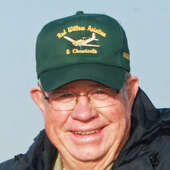- Dining in December at Camp Comeca (12/17/24)
- Trail: Getting in the seasonís spirit (12/10/24)
- Trail: Yuletide joy and airport blues (12/3/24)
- A Thanksgiving reflection on history and freedom (11/26/24)
- Sweatshirts, Jazzercise, and an unforgiving political climate (11/19/24)
- After the election: Lessons from history (11/5/24)
- Candy or cash: candidates and causes trick-or-treat for donations (10/29/24)
Opinion
The state of aviation
Tuesday, November 26, 2013
You may have noticed in the media that the airlines may be experiencing a pilot shortage. Could be, and it was predictable.
Recently the FAA changed the rules to make the traveling public "safer." Never mind that travel by commercial air has been the safest mode of travel in the history of mankind. The rule change came partially from the investigation following the crash of a Colgan Airways airplane arriving into Cleveland. The loss of life was unfortunate and sad.
The Colgan pilot in command had a spotty record, having flunked several check rides. In each case, he received remedial training and was put back on the line. Union rules. The copilot, the airlines call them FO's for First Officer, was really inexperienced and was not assertive in making corrections to the captain.
The weather was bad with snow and accumulating airframe icing but was perfectly flyable for a good pilot crew.
It may be Monday-morning quarterbacking but In my experience as a KC-135 Tanker Squadron Commander, I would have managed my crews a little better.
I flew regularly with my flight crews and evaluated my crew members. I paired weak pilots with strong copilots.
Weak and or inexperienced copilots I paired with strong pilots to mentor them and get them up to my standards. Copilots that didn't improve went to non-flying jobs.
Some airlines do it differently. Union rules require keeping poor and marginal pilots and the hope is they won't have an accident. In my book hope (and change) doesn't cut it.
The new airline rules require the new FO's to have much more flying time, 1500 hours rather than the 250 required before. They also must have earned an Airline Transport Rating (ATP) verses the commercial rating prior.
Hello! All of a sudden the pool of available pilots to hire, those that meet the new standard, just aren't there. Pilot shortage.
Ex-military pilots have always been a source for the airlines to hire. Over the years, our military has contracted to the small number of active duty pilots on board today. Therefore, that source of welltrained and experienced pilots has significantly reduced so fewer are available for airline hire.
Over recent years, airline working conditions have deteriorated and pay has significantly been cut back. Many pilots in corporate aviation who formerly thought airline aviation a step up have decided to stay where they are, so that source of pilots is drying up.
Another major factor is cost to train to become a pilot. Gasoline costs at least $2 a gallon more than auto fuel, which is too high already. Insurance related to aviation is exorbitant due in part to greedy lawyers and immoral judges. Arcane, and too-numerous regulations make improved new aircraft hideously expensive. The only guy not getting rich is the flight instructor, all too many of whom stay to teach only long enough to gain enough flying time to get a "better" job.
Such is the present state of the avocation I've loved, enjoyed and profited from over many years. It is sad to see aviation going through hard times. Yet I have eternal optimism that aviation's best days are yet ahead.
That is how I saw it.

